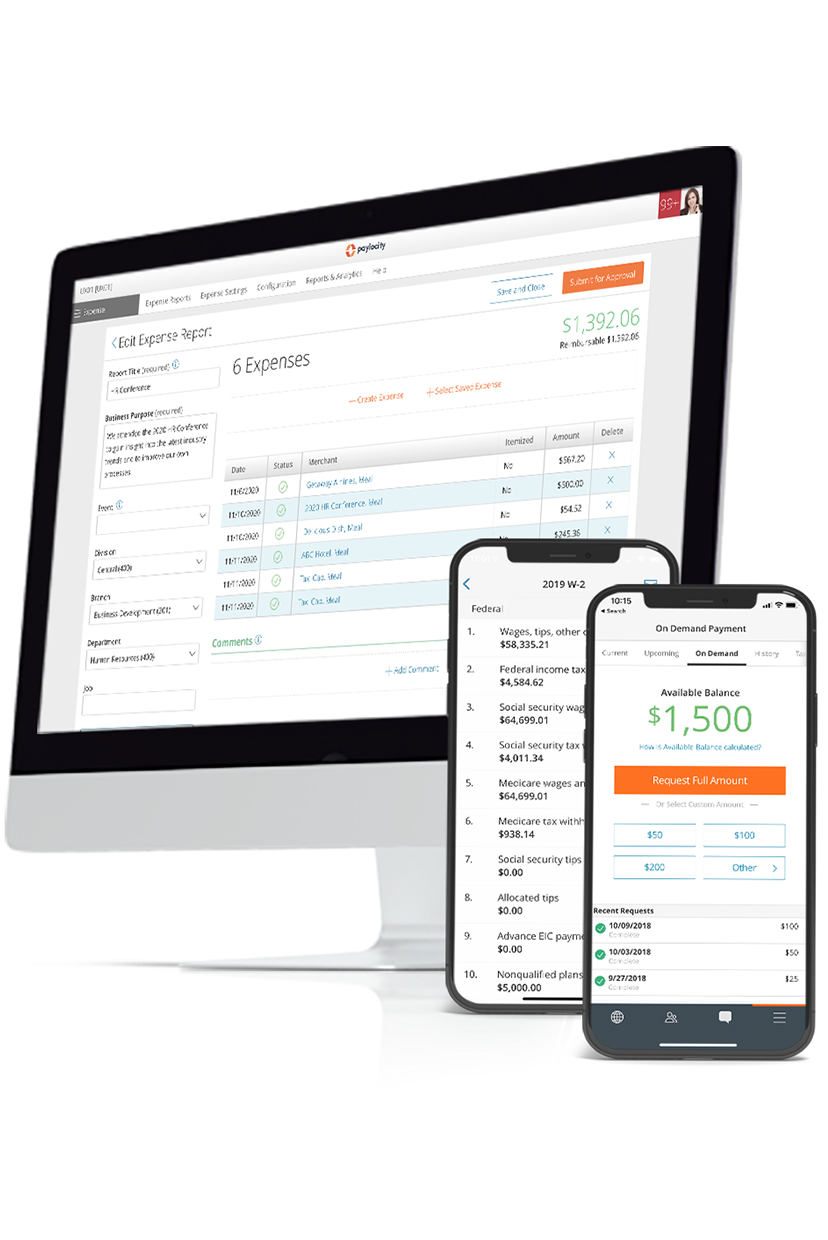What Is HRIS Software, and Why Is it Important?
An HRIS is a type of HR software that both functions as a database for housing critical employee information and assists with essential HR functions, such as payroll, benefits administration, and workflow management.
The earliest platforms focused on automating manual HR tasks, such as maintaining personnel information or payroll processing. More recent HRIS software features have expanded to include functionality that impact each phase of the employee lifecycle.
But it’s not just organizations that stand to benefit. Let’s explore how the right HRIS benefits both employers and employees.
10 Benefits of HRIS Systems For Businesses and Employees
An HRIS is your partner in improving organizational efficiency and compliance, strategic HR management, and employee self-service, communication, and professional development. But what does that look like?
Benefits of HRIS Software For Businesses
- Efficient and Accurate Data Management — An HRIS centralizes and streamlines data management, making organizing and accessing employee information easier while reducing manual administrative tasks and the likelihood of human error. HR professionals used to complete these tasks manually, often in fields of filing cabinets that could take hours to navigate, but HRIS software dramatically simplifies this process.
- Time and Cost Savings — Automating routine HR tasks, such as payroll processing and benefits administration through workflows, leads to significant time and cost savings for businesses. It allows an HR team to perform actions in a fraction of the time, freeing up their attention to focus on larger strategic goals for the organization.
- Improved Compliance — Compliance with government regulations is a significant concern for organizations of all sizes, as violating any requirements can result in steep fines or penalties. However, a well-organized HRIS creates a unified network for tracking and storing compliance data in case of an audit, such as training course completion and submitted governmental forms.
- Enhanced Communication and Decision Making — Centralized channels and access to real-time analytics allows HR professionals and management to coordinate more informed decisions about workforce planning, talent management, and resource allocation. This allows them to form strong, strategic partnerships with senior leadership and the organization as a whole.
- Streamlined Talent Management and Recruitment — HRIS software can provide automated job postings and candidate pool management, identify skills gaps and employee development opportunities, and track workforce trends and demographics. Premier systems can even include specific tools for retaining your top talent, such as analyzing employee sentiment and administering benefits.
- Stronger Corporate Culture — HRIS software designed for the employee experience often has helpful communication and connection features, like social collaboration hubs and peer recognition capabilities. These features allow both leaders and employers to stay connected, which in turn can help foster a more engaged company culture.
Benefits of HRIS Software for Employees
- Self-Service Opportunities — HRIS self-service portals boost employee independence and autonomy by giving workers the ability to conveniently access and update their personal information, review pay stubs, request time off, receive performance feedback, and manage benefit enrollments.
- Access to Information — Employees also have easier access to important HR information, such as policies, employee handbooks, and training materials, which fosters organizational transparency and awareness
- Improved Onboarding Experience — HRIS software streamlines the onboarding process by integrating government regulations and allowing new hires to efficiently complete paperwork, access training materials, and familiarize themselves with company policies.
- Training and Development Opportunities — HRIS software may include modules for training and development, providing employees with on-demand and on-the-go opportunities to enhance their skills and knowledge.
Why Your Organization Needs a Modern HRIS
To succeed and thrive in a modern organization HR teams need to be efficient, strategic, and involved. They need to balance agility with insightful analytics and effectively communicate their long-term solutions to any workforce challenges the organization faces.
The best HRIS software can provide all of these and more by streamlining and automating tasks, freeing up time for HR professionals to work on larger initiatives, and fostering a workplace culture that employees want to be a part of.
Schedule a demo to learn more about how Paylocity’s all-in-one HRIS suite can elevate your organization.



?$Hero-Card$)